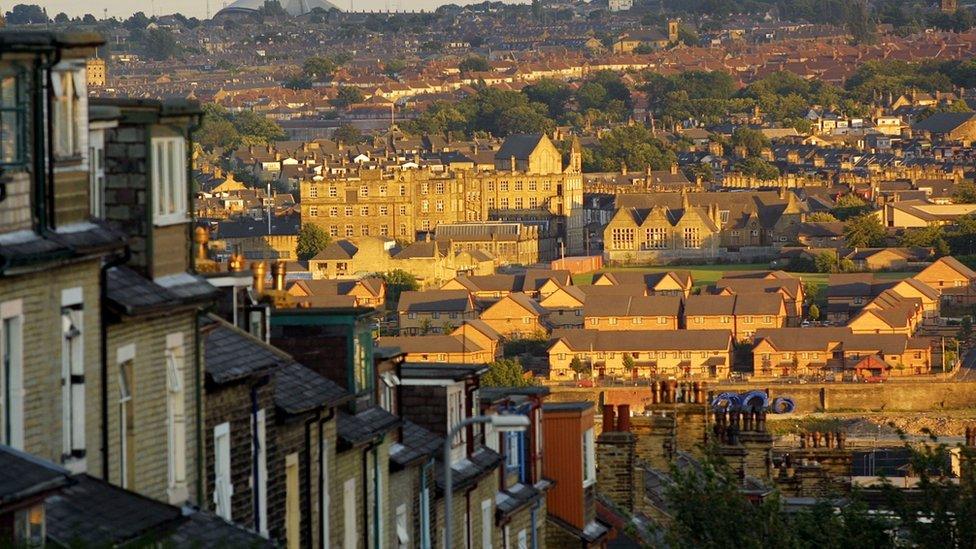Rent control: London Mayor Sadiq Khan calls for more powers
- Published
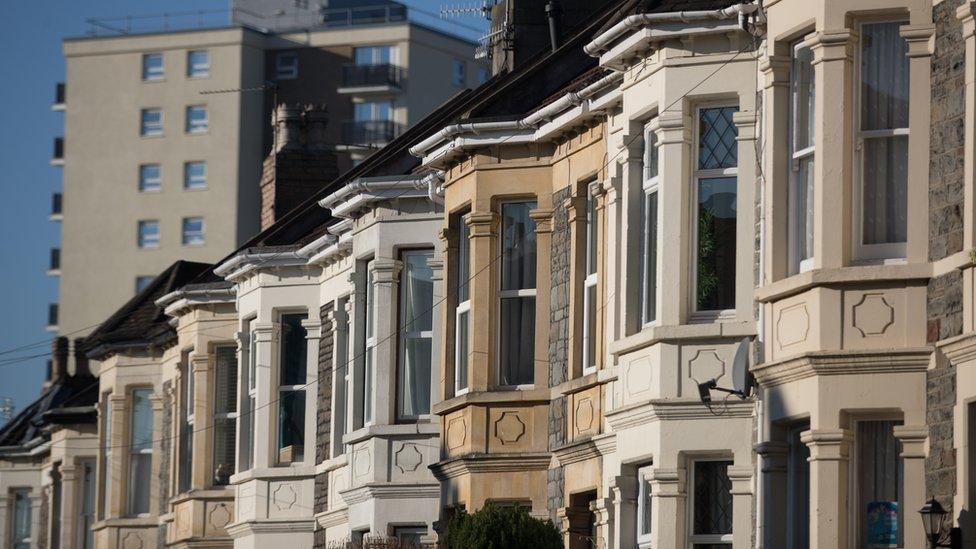
London mayor Sadiq Khan believes rent caps are necessary to "rebalance London's private rented sector"
The mayor of London has called on the government to hand him extra powers so he can cap rents in the capital.
Sadiq Khan said the controls were needed to "fundamentally rebalance London's private rented sector" and make it "fit for purpose".
Critics said his plans were "deluded" and could have a negative long-term impact on the quality of housing.
The government said rent controls could drive responsible landlords out and "ultimately push rents up".
Average monthly private rents in London have increased by 35% from £1,095 in 2011 to £1,473 in 2018, according to analysis by the Valuation Office Agency, external.
Private renters in the city spent 42% of their household income on rent, compared with 30% spent by those living elsewhere in England, according to the latest English Housing Survey, external.

"Londoners who rent privately need help with the high costs of renting," said Sadiq Khan
In his report, titled Reforming Private Renting: The Mayor of London's Blueprint, Mr Khan argues that until more homes were built to ensure long-term affordability, "Londoners who rent privately need help with the high costs of renting".
The arguments for rent control in London had therefore "become overwhelming", the report said.
The Labour mayor said: "If our proposals were implemented, we could fundamentally rebalance London's private rented sector - making it fit for purpose through a new approach that is long overdue."
However, Jonathan Cribb, senior research economist at the Institute for Fiscal Studies, said while rent controls could have short-term benefits for people in rent-controlled properties, they could have a negative impact on the quality of rented housing.
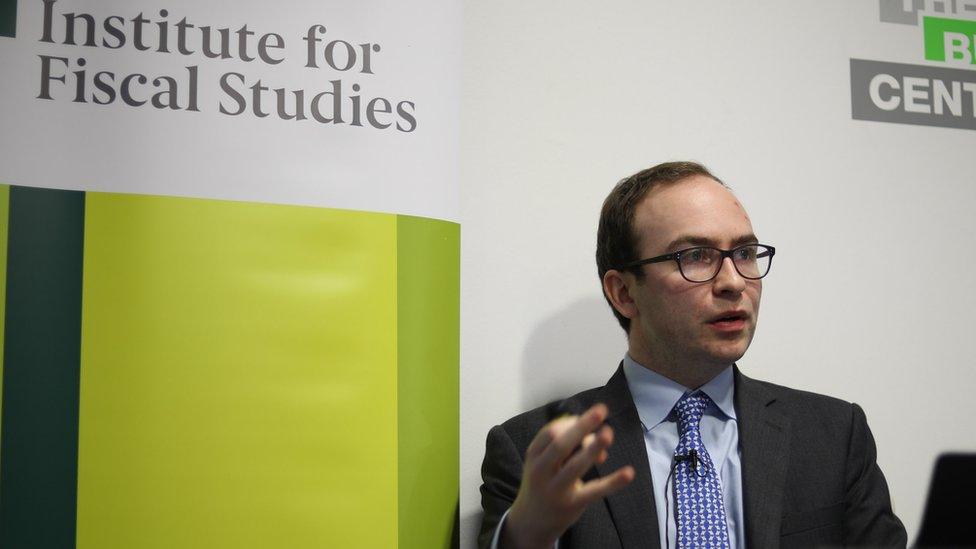
Jonathan Cribb says rent controls could have a negative long term impact on the quality of housing
Most studies, he added, showed landlords looked for other ways to save costs "and a key way to do that is to not maintain the property".
Mr Cribb, whose research focuses on living standards, pension reforms and the labour market, also said rent controls could lead to tenants under-utilising their properties because they were reluctant to move to other, more suitable properties, which were not rent-controlled.

'I had to share a bed with my friend to live in London'

Michelle Sims says she could not afford her own room in London while working as a marketing executive
Michelle Sims, 28, from Sydney in Australia, moved to London with a friend she had met while travelling in 2015.
She said: "We quickly realised we would have to share a room to live in London. When we found a room in a house share, we shared a bed for the first month until we got two.
"Trying to live an adult life but in this very childhood-like scenario felt like being sisters, and was also quite limiting.
"It was like moving in with a partner but more intense. But we simply couldn't afford anything else."
Ms Sims, who was a marketing executive at the time, could have afforded her own room after paying off most of her debt within six months but continued to share a room with her friend who could not.
Together they lived in two different properties. The first one, in South Bermondsey, she said, was "pretty awful".
"We had mould, a window was broken and the estate agency never really fixed the problem," Ms Sims said.
Having paid a "hefty deposit", she said she felt treated unfairly - and thought rent controls "could help a lot of people".

Mr Khan's blueprint recommends the creation of a London Private Rent Commission to "design and implement an effective system of rent control" and to "encourage investment in new and existing rental housing supply".
But Chris Norris, director of policy and practice at the National Landlords Association, said the commission's two-pronged task of incentivising investment and "removing landlords' control over their own businesses" was a "sure-fire way to scare away new and existing investors".
"Capping and reducing rents in the way suggested in this manifesto would destroy any prospect landlords have of making a return on investment and lead to a reduction in private rental homes available to the Londoners who need them," Mr Norris said.
"Although there are some points in this report which the NLA would happily endorse, the mayor's strategy is at best contradictory and at worst deluded."
'Unprecedented action'
His view was echoed by Conservative mayoral candidate Shaun Bailey who said he believed rent controls "don't work".
The mayor "wants to ask for powers he knows the government won't give him so he can pick a fight - meanwhile, Londoners get left behind", Mr Bailey said.
He said the "only answer to the plague of high rents and house prices" was to build more homes.
A spokesperson for the Ministry of Housing, Communities and Local Government said: "The government has taken unprecedented action to transform the private rental market and protect the millions of tenants who live in rented accommodation.
"We have already announced plans to abolish 'no-fault' evictions - the biggest change to the private rental sector in a generation; banned unfair letting fees and capped tenancy deposits, saving renters £240m a year; and put rogue landlords on notice through our Rogue Landlord Database.
"Together, these measures will create a housing market that truly works for everyone - in direct contrast to rent controls which could drive responsible landlords out, could reduce investment in high quality housing and ultimately push rents up."
- Published17 July 2019
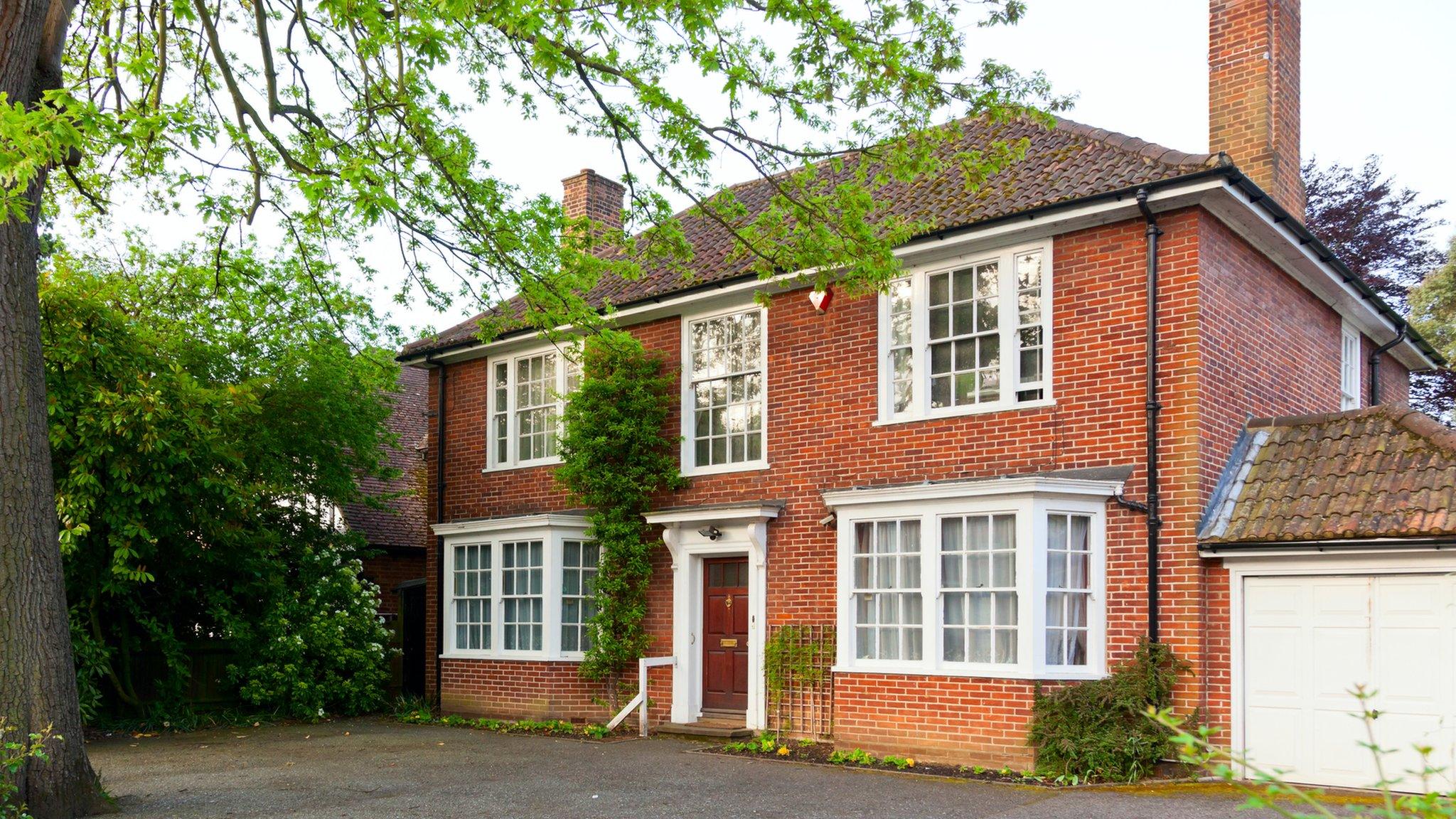
- Published27 June 2019
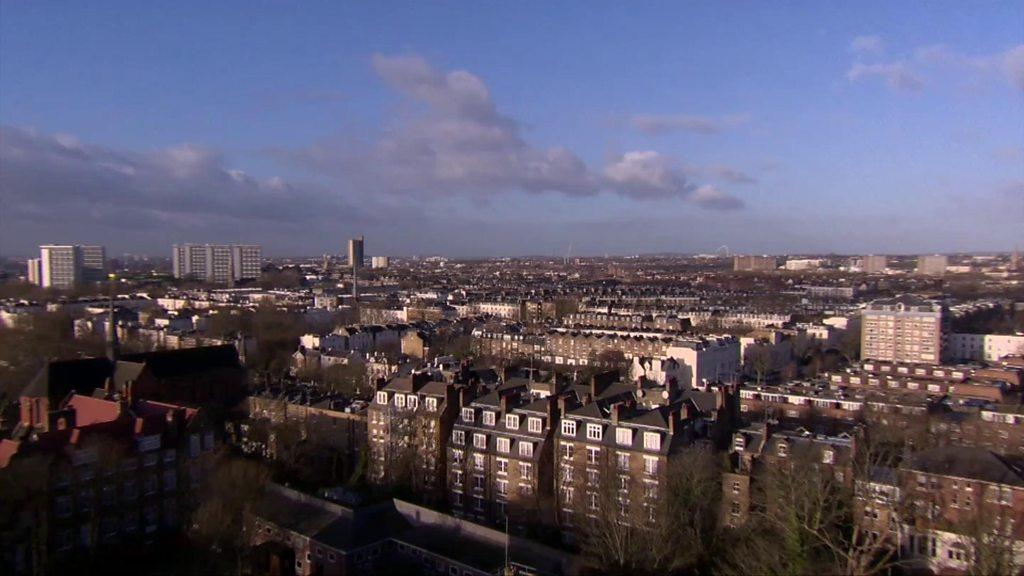
- Published6 June 2019

- Published9 July 2020

- Published3 February 2019
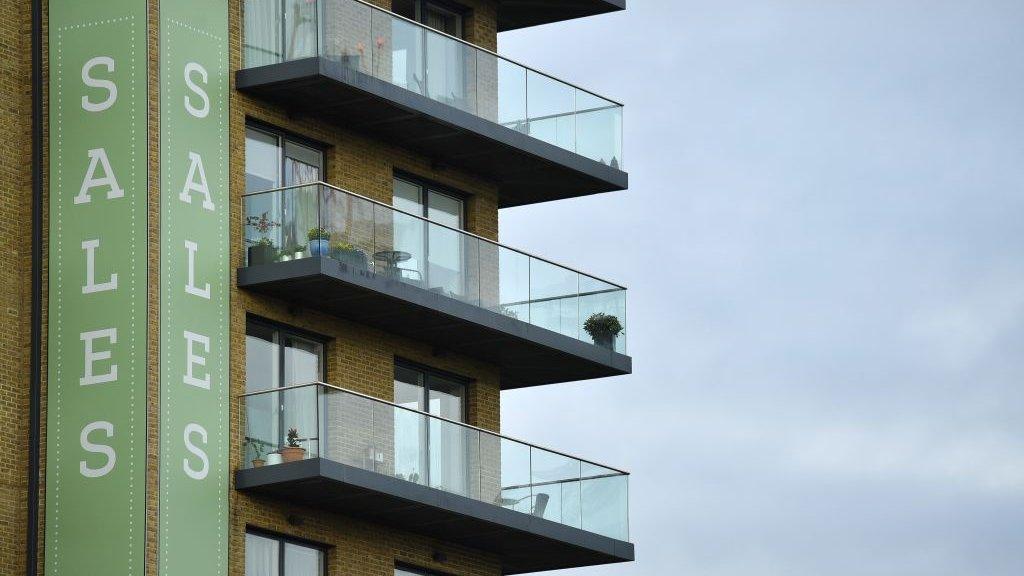
- Published11 November 2018

- Published15 August 2018

- Published21 November 2017
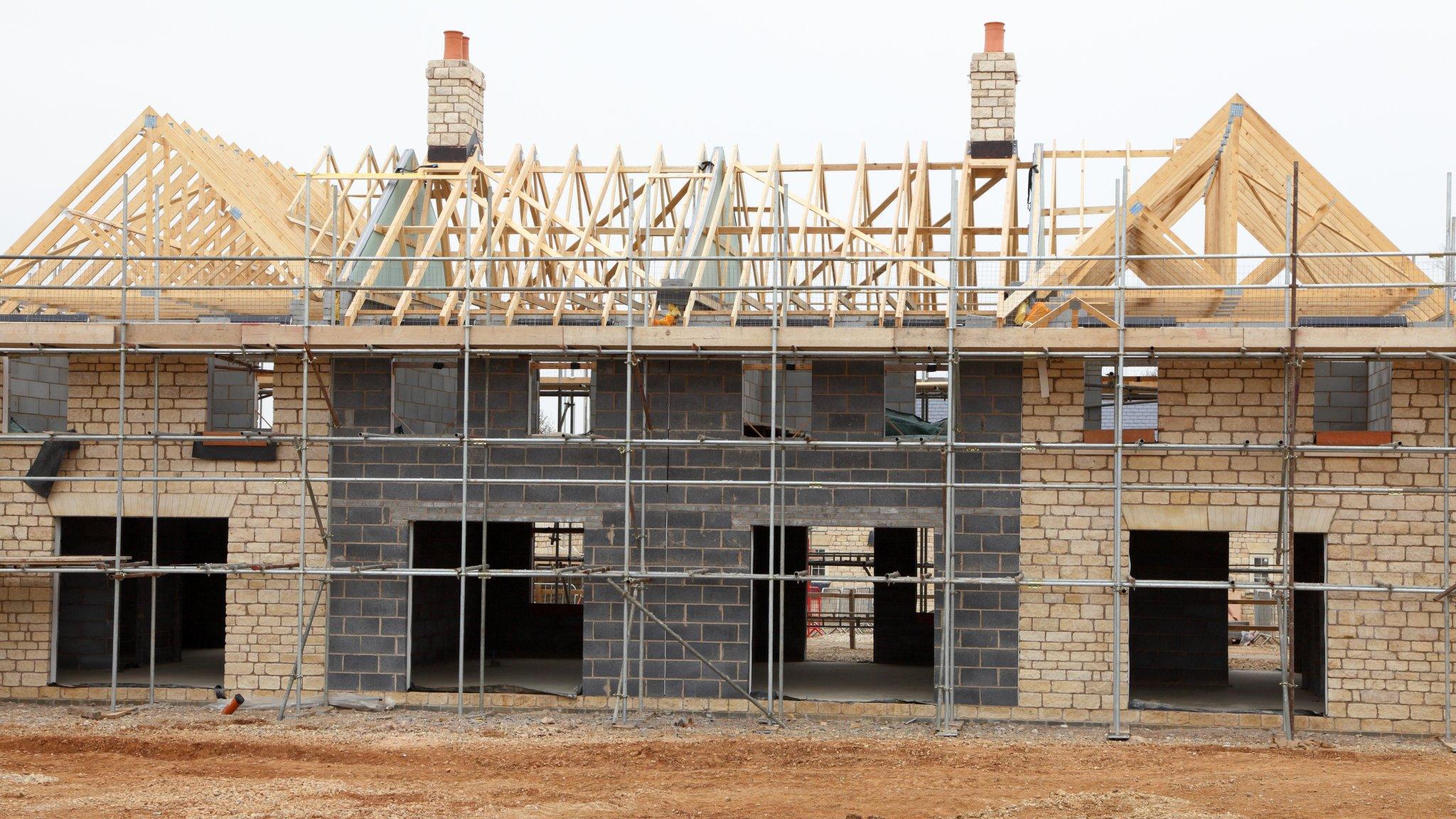
- Published19 December 2017
